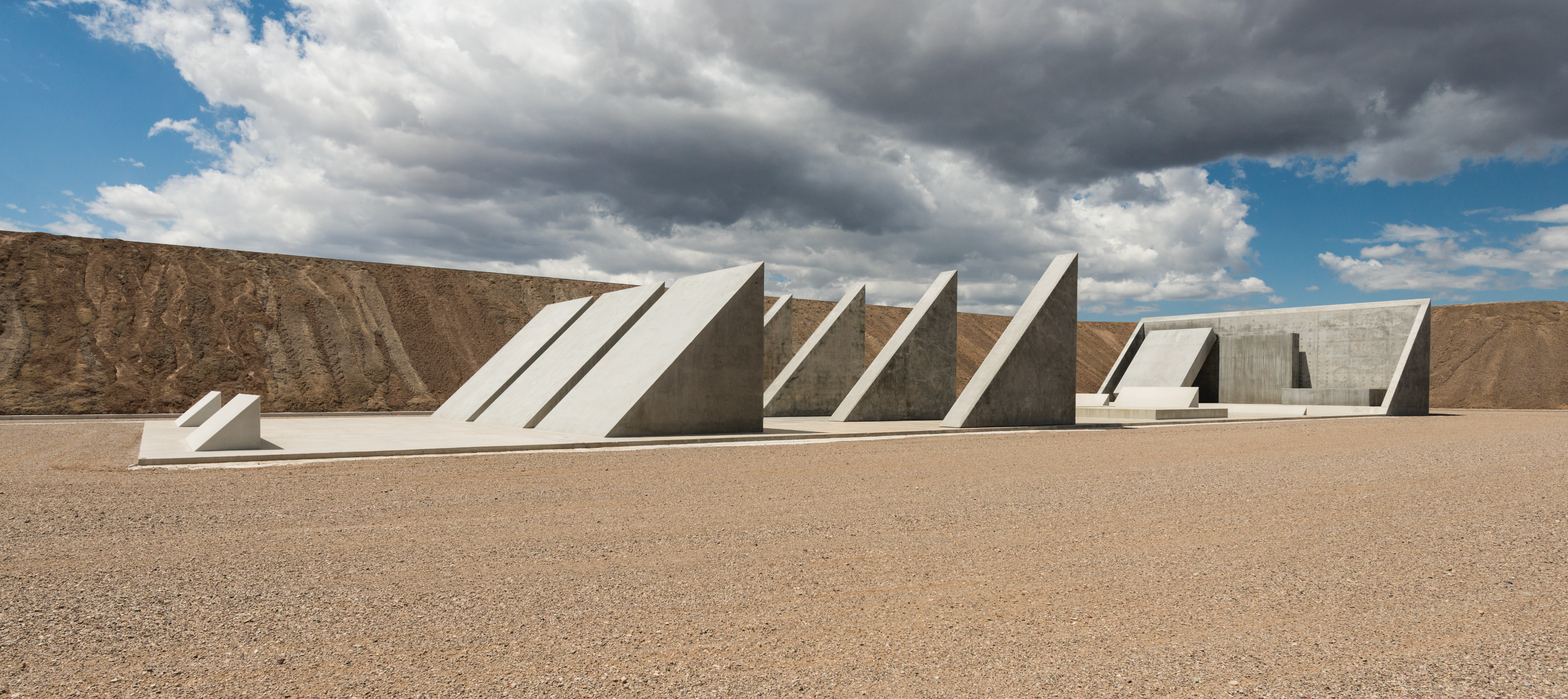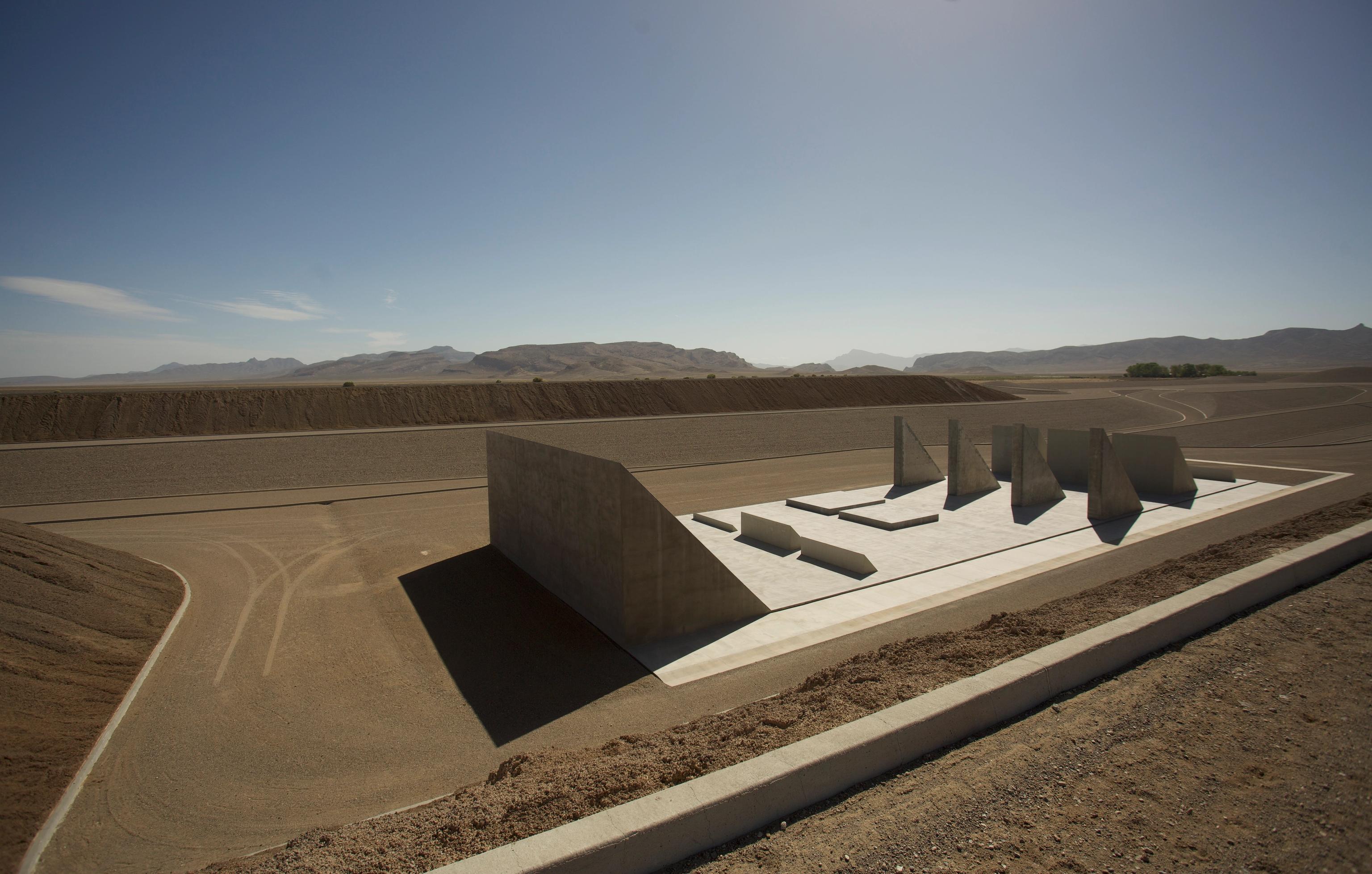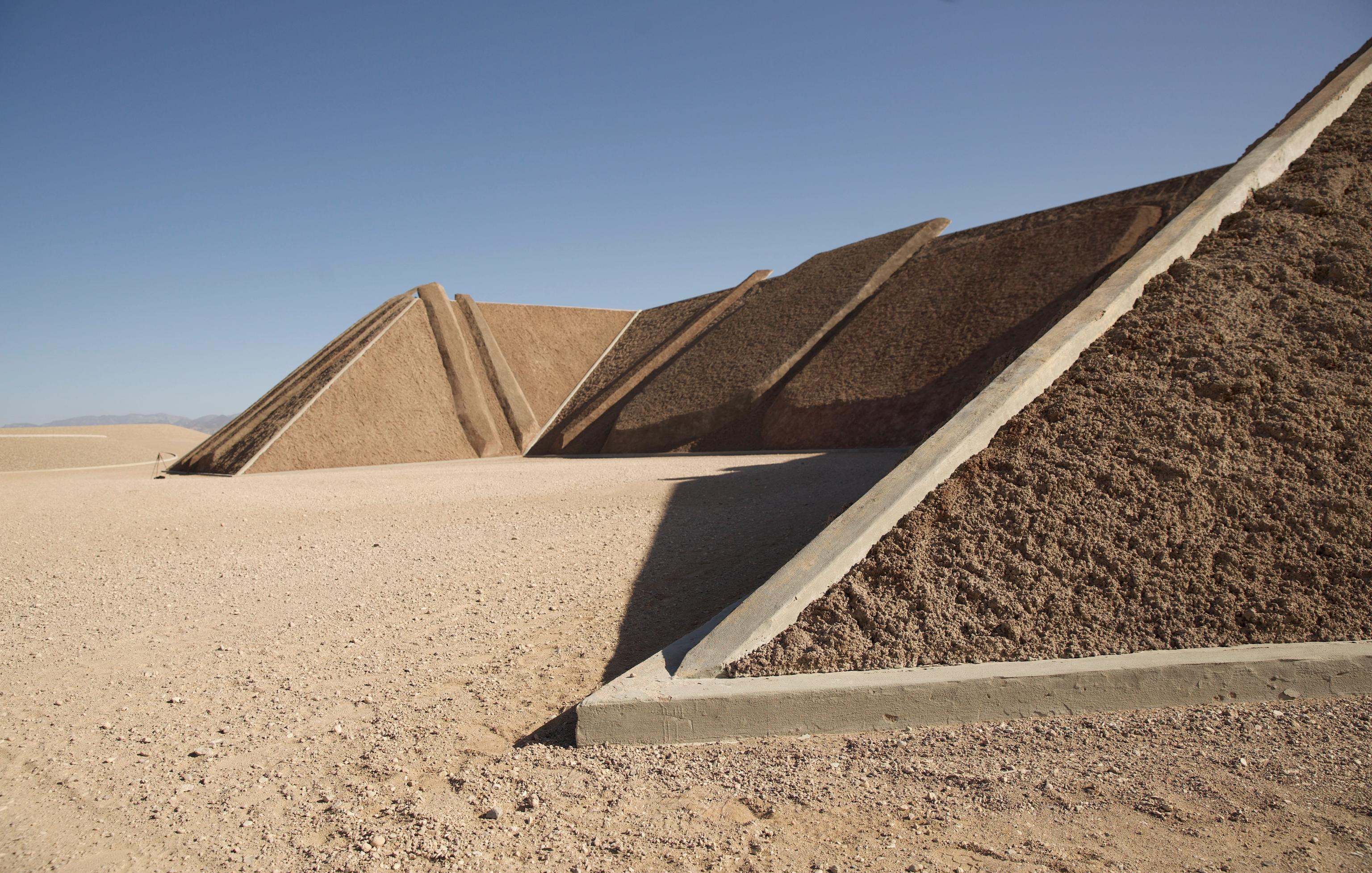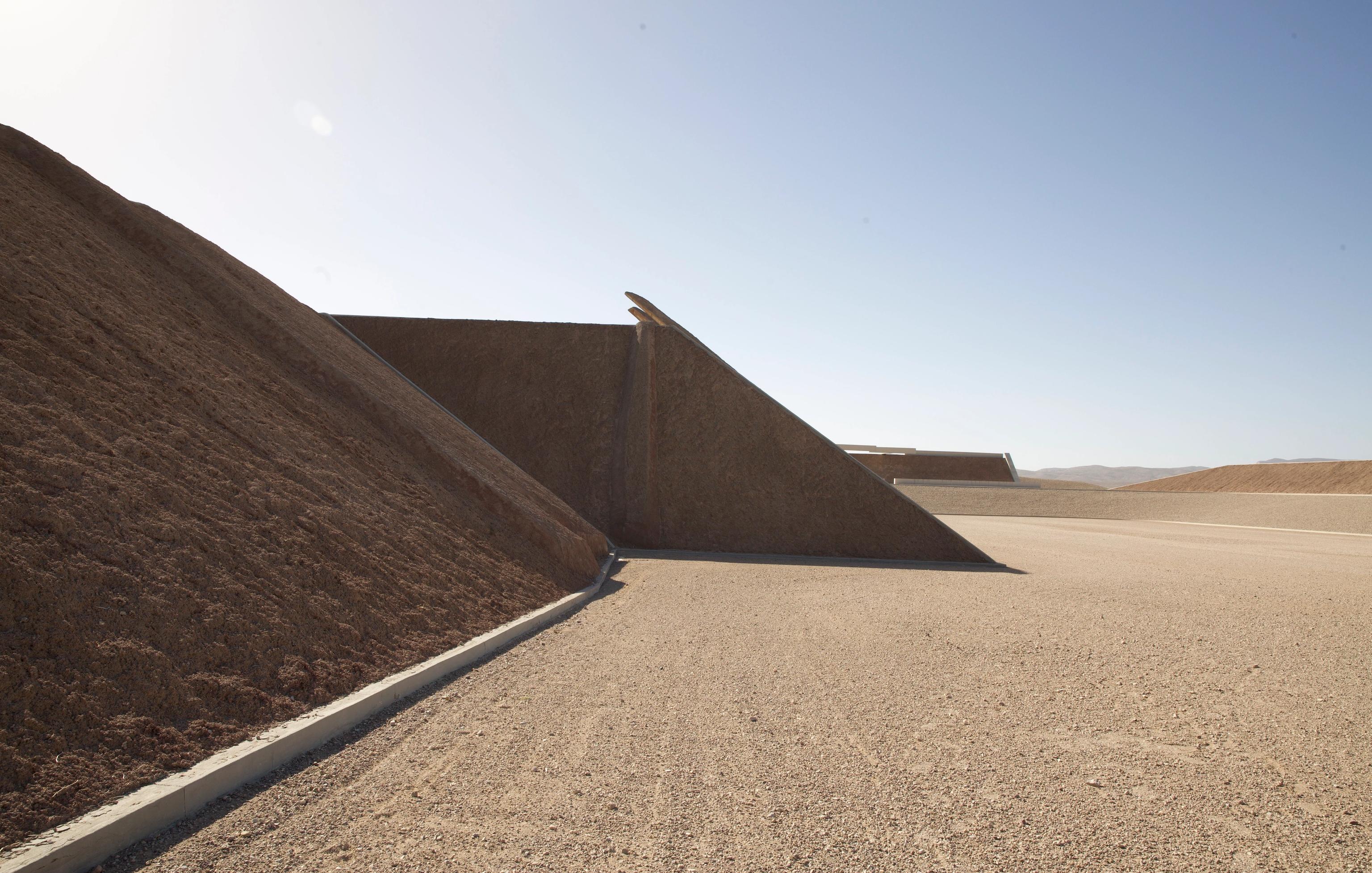
Michael Heizer
City
- ArchitectMichael Heizer
- PhotographerBen Blackwell, Eric Piasecki, Joe Rome and Mary T. Converse
MICHEL ROJKIND What’s admirable in this project is the extraordinary persistence: fifty years of shaping land and concrete into a monumental landscape. Its vast geometries feel both futuristic and ancestral, making space itself the artwork.

City - The project
In the remote expanse of Nevada’s Garden Valley desert lies City, one of the most ambitious works of art ever conceived. Sprawling nearly a mile and a half long and half a mile wide, Michael Heizer’s monumental land artwork is not a city in the conventional sense, but a sculptural environment of vast mounds, plazas, causeways, and geometric forms shaped from earth, concrete, rock, and sand.
Heizer began City in the early 1970s, committing more than five decades to its realization. Its scale recalls ancient ritual sites - Mayan complexes, pre-Columbian cities, Egyptian monuments - yet its stripped-down geometry also reflects the minimalist and industrial aesthetics of the late twentieth century. Walking through City, there is no set beginning or end. Instead, visitors encounter shifting perspectives, long stretches of emptiness, and the interplay of sky and desert against colossal man-made forms.

Beyond the artwork itself, City embodies persistence. For fifty years, Heizer labored on this project, often in isolation, as questions of funding, engineering, and land protection rose and fell around him. In 2015, the surrounding 700,000 acres were designated the Basin and Range National Monument, ensuring that the landscape itself would remain untouched.
Opened to limited public access in 2022, City stands as both artwork and statement: a defiant monument to human creativity, permanence, and time. In Heizer’s words, it is intended to represent “all of civilization to this point” - a work that asks us to consider what it means to build something that might outlast us all.






